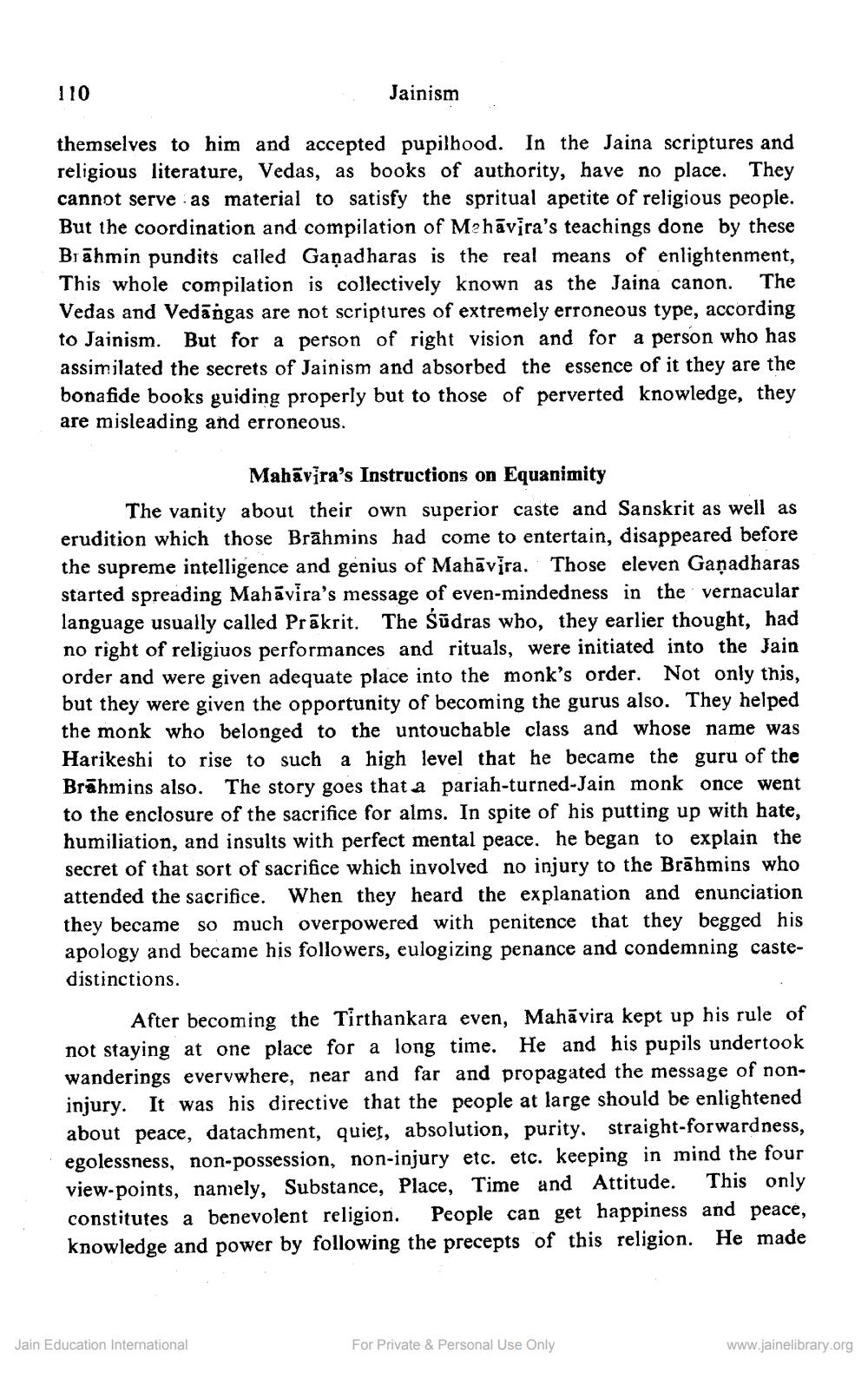________________
110
Jainism
themselves to him and accepted pupilhood. In the Jaina scriptures and religious literature, Vedas, as books of authority, have no place. They cannot serve as material to satisfy the spritual apetite of religious people. But the coordination and compilation of Mehāvira's teachings done by these B1āhmin pundits called Ganadharas is the real means of enlightenment, This whole compilation is collectively known as the Jaina canon. The Vedas and Vedāngas are not scriptures of extremely erroneous type, accord to Jainism. But for a person of right vision and for a person who has assimilated the secrets of Jainism and absorbed the essence of it they are the bonafide books guiding properly but to those of perverted knowledge, they are misleading and erroneous.
Mahāvira's Instructions on Equanimity The vanity about their own superior caste and Sanskrit as well as erudition which those Brāhmins had come to entertain, disappeared before the supreme intelligence and genius of Mahāvira. Those eleven Ganadharas started spreading Mahāvira's message of even-mindedness in the vernacular language usually called Prākrit. The Śūdras who, they earlier thought, had no right of religiuos performances and rituals, were initiated into the Jain order and were given adequate place into the monk's order. Not only this, but they were given the opportunity of becoming the gurus also. They helped the monk who belonged to the untouchable class and whose name was Harikeshi to rise to such a high level that he became the guru of the Brāhmins also. The story goes that a pariah-turned-Jain monk once went to the enclosure of the sacrifice for alms. In spite of his putting up with hate, humiliation, and insults with perfect mental peace. he began to explain the secret of that sort of sacrifice which involved no injury to the Brahmins who attended the sacrifice. When they heard the explanation and enunciation they became so much overpowered with penitence that they begged his apology and became his followers, eulogizing penance and condemning castedistinctions.
After becoming the Tirthankara even, Mahāvira kept up his rule of not staying at one place for a long time. He and his pupils undertook wanderings evervwhere, near and far and propagated the message of noninjury. It was his directive that the people at large should be enlightened about peace, datachment, quiet, absolution, purity. straight-forwardness, egolessness, non possession, non-injury etc. etc. keeping in mind the four view-points, namely, Substance, Place, Time and Attitude. This only constitutes a benevolent religion. People can get happiness and peace, knowledge and power by following the precepts of this religion. He made
Jain Education International
For Private & Personal Use Only
www.jainelibrary.org




